from: http://bit.ly/1nPdo8K
ENHANCE YOUR ENERGY WITH ENERGY ENHANCEMENT
AXIS
MUNDI IS THE ENERGY ENHANCEMENT KUNDALINI KEY
Axis
Mundi is a symbol found all over the world in every religion, in
every place, it is the the Antahkarana and the Energy Enhancement
Kundalini Key
Axis mundi is a column representing a stream of energy 'Twixt Heaven and Earth, also representing the chakras above the head which are the various worlds we visit in meditation, where ilumination and enlightenment exist alongside psychic powers and sacred knowledge.
In
Axis Mundi, an extremely important Symbol from every religious
tradition all over the World, the Axis Mundi Column springs from
the center of the Earth perpendicular to the Earth represenys the
Antahkarana connecting with the Chakras above the head which just
means that a person in meditation with their spine square to the
earth has the possibility of becoming a "Stream Enterer",
entering into and accessing the Stream of Energy springing like a
fountain from Kundalini Chakra, Tartaros, The Black Sun. in the
center of the earth and flowing through the spine of the meditator
into the Central Spiritual Sun in the center of the universe.Axis mundi is a column representing a stream of energy 'Twixt Heaven and Earth, also representing the chakras above the head which are the various worlds we visit in meditation, where ilumination and enlightenment exist alongside psychic powers and sacred knowledge.
The axis Mundi symbol is just that, a symbol. It is meant to be used in meditation in order to ascend through the chakras above the head towards sacred knowledge and enlightenment, used like like the AUM or OM in order to go, "One step Higher".
Axis Mundi the Antahkarana and the Energy Enhancement Kundalini Key has been carefully removed from all traditional meditations to remain just as an unused symbol. For those who can read the legominisms of the past it becomes a path to knowledge - only in Energy Enhancement - "We put back what the others took out".
Have
been removed from all Traditional Meditations - Thus "Traditional
forms of meditation are designed to fail!!"
AXIS
MUNDI MOUNT KAILASH

Mount Kailash, depicting the holy family:
of
Shiva and Parvati cradling Skanda with Ganesha by Shiva's side

The axis mundi (also cosmic axis, world axis, world pillar, columna cerului, center of the world), in meditation, religion or mythology, is the world center or the connection between Heaven and Earth. As the celestial pole and geographic pole, it expresses a point of connection between sky and earth where the four compass directions meet. At this point a circular travel and correspondence is made between higher and lower realms.[1]
As
in the Emerald Tablet of Hermes Trismegistus Communication from lower
realms - THE CHAKRAS BELOW THE BASE CHAKRA may ascend to higher ones
- CHAKRAS ABOVE THE HEAD and blessings from higher realms may descend
to lower ones and be disseminated to all.[2]
The
spot functions as the omphalos (world navel), the world's point of
beginning.[3][4] Omaphalos or Om Phallus - a penis is also Axis
Mundi.The
spot where it represented the center of the earth, hence the name
Omphalos, or Om Phallus, first determined when Zeus sent two eagles
from each end of the kosmos - the chakras above the head and the
chakras below the base chakra - and the two then met and circled in
the Center of the Earth... (See
Alchemical VITRIOL)

The
stone, same shape here as the Shiva lingam or the penis of Shiva,
shown above originally had two golden eagles attached to its top.
This makes the symbol of Omphalos look very much like the Caduceus of
Mercury, messenger of the Gods and Hermes which also symbolizes the
Antahkarana – the Column of Energy between Heaven and Earth.
Click
Here.. http://www.energyenhancement.org/The-Omphalos-Om-Phallus-stone-from-Delphi-and-energy-blockage-implants.htm
The image of Axis Mundi relates to center of the earth as in Alchemical VITRIOL as a column stretching from the center of the earth outwards at any point on the earth to the chakras above the head. It may have the form of a natural object (a mountain, a tree, a vine, a stalk, a column of smoke or fire) or a product of human manufacture (a staff, a tower, a ladder, a staircase, a maypole, a cross, a steeple, a rope, a totem pole, a pillar, a spire). Its proximity to heaven may carry implications that are chiefly religious (pagoda, temple mount, minaret, church) or secular (obelisk, lighthouse, rocket, skyscraper). The image appears in religious and secular contexts.[5] The axis mundi symbol may be found in cultures utilizing shamanic practices, in major world religions, and in technologically advanced "urban centers". In Mircea Eliade's opinion, "Every Microcosm, every inhabited region, has a Centre; that is to say, a place that is sacred above all."[6]
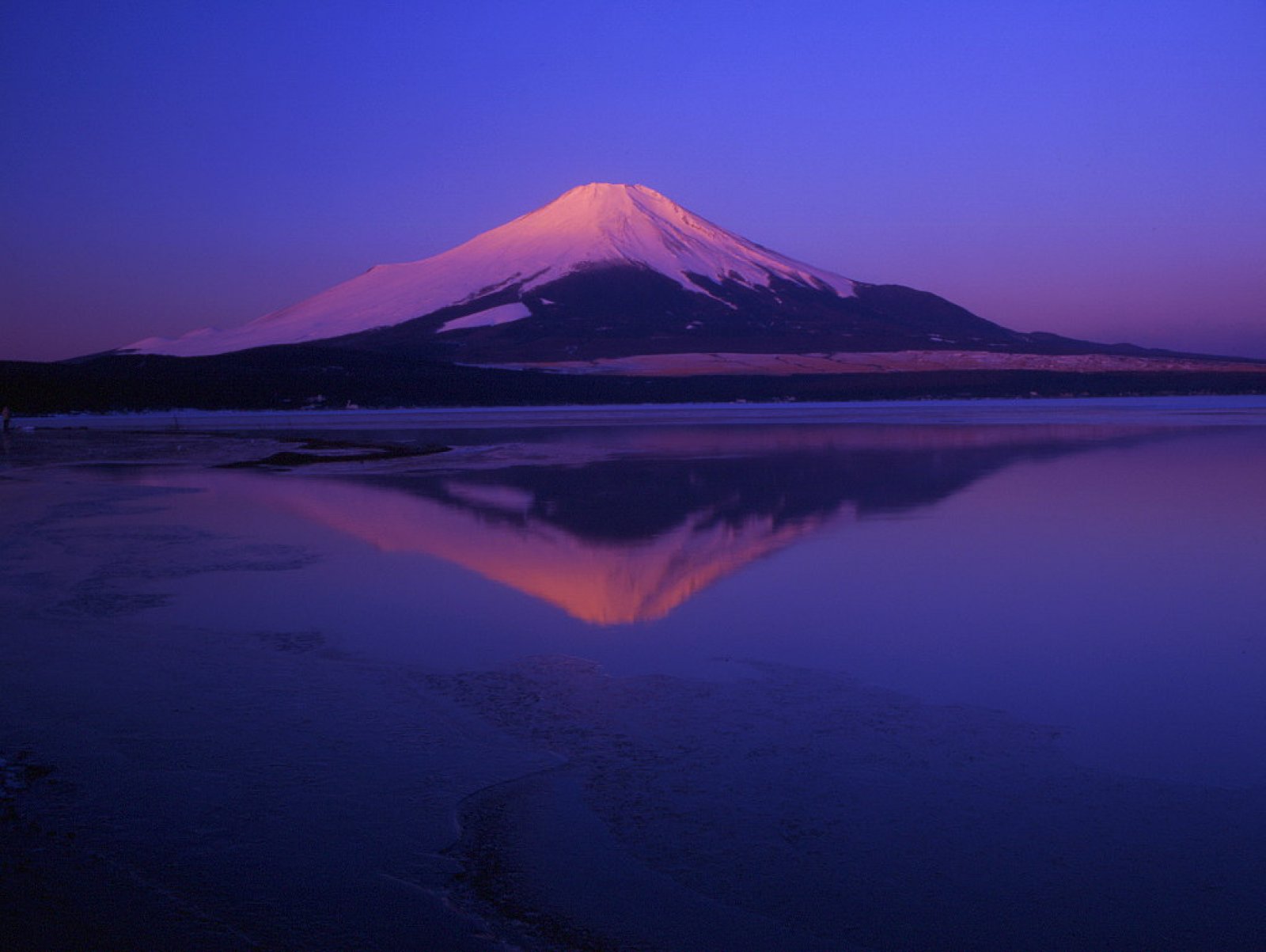
Mount Fuji, Japan - The symbol originates in a natural and universal psychological perception: that the spot one occupies stands at "the center of the world". This space serves as a microcosm of order because it is known and settled. Outside the boundaries of the microcosm lie foreign realms that, because they are unfamiliar or not ordered, represent chaos, death or night.[7] From the center one may still venture in any of the four cardinal directions, make discoveries, and establish new centers as new realms become known and settled. The name of China, "Middle Kingdom", is often interpreted as an expression of an ancient perception that the Chinese polity (or group of polities) occupied the center of the world, with other lands lying in various directions relative to it.[5]
Within the central known universe a specific locale-often a mountain or other elevated place, a spot where earth and sky come closest-gains status as center of the center, the axis mundi. High mountains are typically regarded as sacred by peoples living near them. Shrines are often erected at the summit or base.[8] Japan's highest mountain, Mount Fuji, has long symbolized the world axis in Japanese culture.
Mount
Kun-Lun fills a similar role in China.
For
the ancient Hebrews Mount Zion expressed the symbol.
Sioux
beliefs take the Black Hills as the axis mundi.
Mount Kailash is holy to Hinduism and several religions in Tibet.
The
Pitjantjatjara people in central Australia consider Uluru to be
central to both their world and culture.
In
ancient Mesopotamia the cultures of ancient Sumer and Babylon erected
artificial mountains, or ziggurats, on the flat river plain. These
supported staircases leading to temples at the top.
The
Hindu temples in India are often situated on high mountains. E.g.
Amarnath, Tirupati, Vaishno Devi etc.
The
pre-Columbian residents of Teotihuacán in Mexico erected huge
pyramids featuring staircases leading to heaven.
Jacob's
Ladder is an axis mundi image, as is the Temple Mount.
For
Christians the Cross on Mount Calvary expresses the symbol.[9]
The
Middle Kingdom, China, had a central mountain, Kun-Lun, known in
Taoist literature as "the mountain at the middle of the world."
To "go into the mountains" meant to dedicate oneself to a
spiritual life.[10] In addition to the Kun Lun Mountains, where
it is believed the peach tree of immortality is located, the Chinese
folk religion recognizes four other specific mountains as pillars of
the world.
Monasteries
of all faiths tend, like shrines, to be placed at elevated spots.
Wise
religious teachers like Moses are typically depicted in literature
and art as bringing their revelations at world centers: mountains,
trees, temples.
Because the axis mundi is an idea that unites a number of concrete images, no contradiction exists in regarding multiple spots as "the center of the world". The symbol can operate in a number of locales at once.[6]
Because the axis mundi is an idea that unites a number of concrete images, no contradiction exists in regarding multiple spots as "the center of the world". The symbol can operate in a number of locales at once.[6]
Mount
Hermon was regarded as the axis mundi in Caananite tradition, from
where the sons of God are introduced descending in 1 Enoch
(1En6:6).[11]
The
ancient Greeks regarded several sites as places of earth's omphalos
(navel) stone, notably the oracle at Delphi, while still maintaining
a belief in a cosmic world tree and in Mount Olympus as the abode of
the gods.
Judaism
has the Temple Mount and Mount Sinai, Christianity has the Mount of
Olives and Calvary, Islam has Mecca, said to be the place on earth
that was created first, and the Temple Mount (Dome of the Rock).
In
Hinduism, Mount Kailash is identified with the mythical Mount Meru
and regarded as the home of Shiva; in Vajrayana Buddhism, Mount
Kailash is recognized as the most sacred place where all the dragon
currents converge and is regarded as the gateway to Shambhala.
In
Shinto, the Ise Shrine is the omphalos.
In
Mormonism, the omphalos is the Temple Lot in Independence, Missouri,
United States.[12]
Sacred places constitute world centers (omphalos) with the altar or place of prayer as the axis. Altars, incense sticks, candles and torches form the axis by sending a column of smoke, and prayer, toward heaven. The architecture of sacred places often reflects this role. "Every temple or palace--and by extension, every sacred city or royal residence--is a Sacred Mountain, thus becoming a Centre."[13]
Sacred places constitute world centers (omphalos) with the altar or place of prayer as the axis. Altars, incense sticks, candles and torches form the axis by sending a column of smoke, and prayer, toward heaven. The architecture of sacred places often reflects this role. "Every temple or palace--and by extension, every sacred city or royal residence--is a Sacred Mountain, thus becoming a Centre."[13]
The
Axis Mundi stupa of Hinduism, and later Buddhism, reflects Mount Meru
as The Kundalini Key - a tower or mountain arising out of the
hemishphere of the earth.
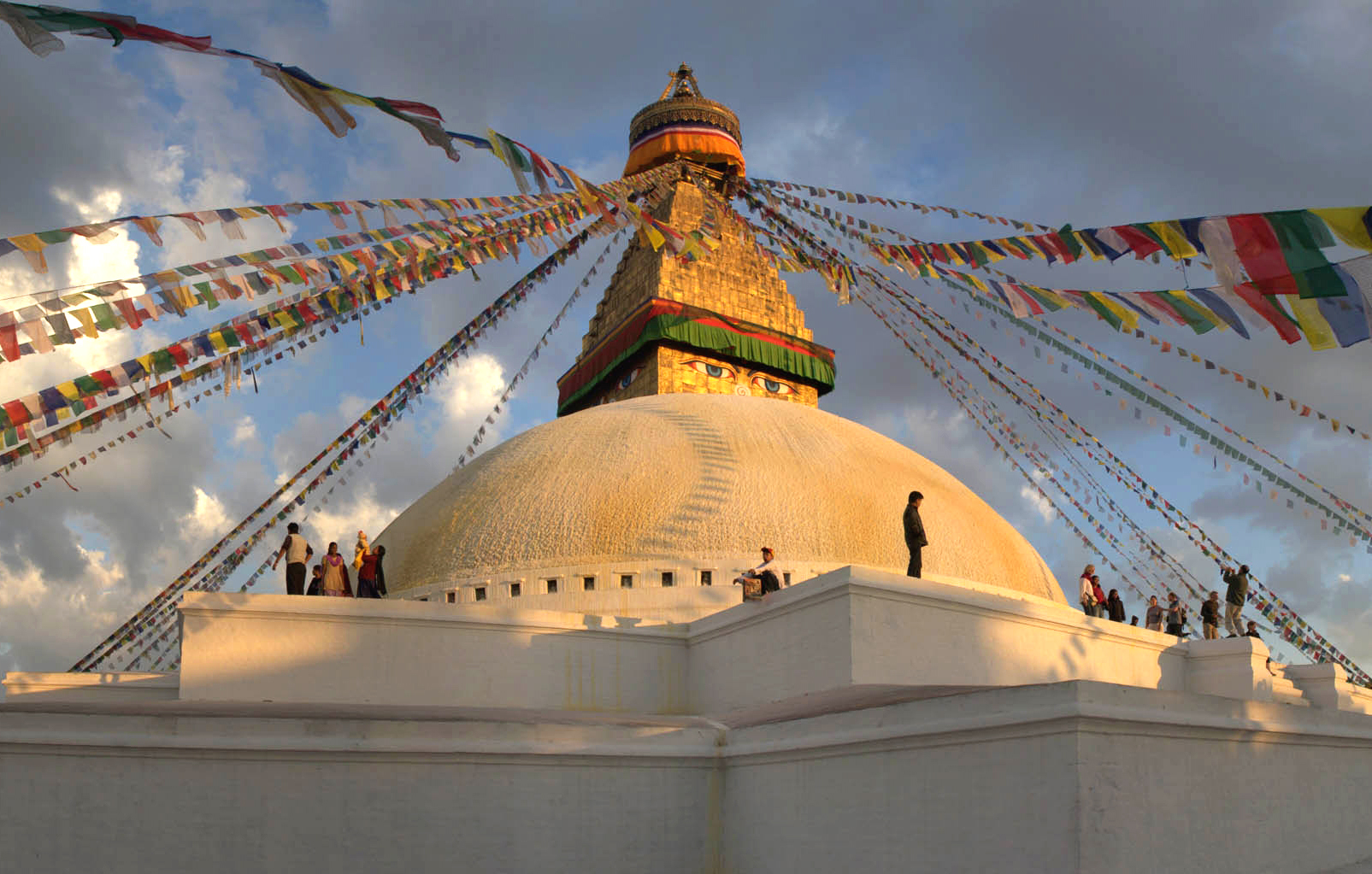
Boddhinath
Stupa - Removed from all Buddhist Meditations - The Kundalini
Key - a tower or mountain arising out of the hemishphere of the earth
showing the stream of energy arising from the center of the earth
going to the Chakras above the Head - Gurdjieff's Central Spiritual
Sun . Getting into alignment with that stream in Energy Enhancement
Meditation...
Sole
dominion over the earth,
going to heaven,
lordship over all worlds:
the fruit of stream-entry
excels them.
— Dhp 178
going to heaven,
lordship over all worlds:
the fruit of stream-entry
excels them.
— Dhp 178
Cathedrals
are laid out in the form of a cross, with the vertical bar
representing the union of earth and heaven as the horizontal bars
represent union of people to one another, with the altar at the
intersection.
Pagoda
structures in Asian temples take the form of a stairway of chakras
linking earth and heaven.
A
steeple in a church or a minaret in a mosque also serve as
connections of earth and heaven.
Structures
such as the maypole, derived from the Saxons' Irminsul, and the totem
pole among indigenous peoples of the Americas also represent world
axes.
The
calumet, or sacred pipe, represents a column of smoke (the soul)
rising from a world center.[14]
A
mandala creates a world center within the boundaries of its
two-dimensional space analogous to that created in three-dimensional
space by a shrine.[15]
Yggdrasil, the World Ash (Norse) Plants often serve as images of the axis mundi. The image of the Cosmic Tree provides an axis symbol that unites three planes: sky (branches), earth (trunk) and underworld (roots).[16]
Yggdrasil, the World Ash (Norse) Plants often serve as images of the axis mundi. The image of the Cosmic Tree provides an axis symbol that unites three planes: sky (branches), earth (trunk) and underworld (roots).[16]
Odin
suspended on the Yggdrasil axis of the chakras above the head of axis
mundi between heaven and earth became a repository of sacred
knowledge
In
some Pacific island cultures the banyan tree, of which the Bodhi tree
is of the Sacred Fig variety, is the abode of ancestor spirits.
In
Hindu religion, the banyan tree is considered sacred and is called
"Ashwath Vriksha" ("I am Banyan tree among trees"
- Bhagavad Gita)."The Blessed Lord said: There is a banyan tree
which has its roots upward and its branches down and whose leaves are
the Vedic hymns. One who knows this tree is the knower of the Vedas."
Again by ascending the chakras above the head, sacred knowledge like
the Vedas becomes known.
The
Bodhi Tree is also the name given to the tree under which Gautama
Siddhartha, the historical Buddha, sat on the night he attained
enlightenment. The Yggdrasil, or World Ash, functions in much the
same way in Norse mythology; it is the site where Odin found
enlightenment.
Other
examples include Jievaras in Lithuanian mythology and Thor's Oak in
the myths of the pre-Christian Germanic peoples. The Tree of Life and
the Tree of Knowledge of Good and Evil in Genesis present two aspects
of the same image. Each is said to stand at the center of the
Paradise garden from which four rivers flow to nourish the whole
world. Each tree confers a boon.
Bamboo,
the plant from which Asian calligraphy pens are made, represents
knowledge and is regularly found on Asian college campuses.
The
Christmas tree, which can be traced in its origins back to
pre-Christian European beliefs, represents an axis mundi.[17]
In
China, traditional cosmography sometimes depicts the world center
marked with the Jian tree 建木.
Two more trees are placed at the East and West, corresponding to the
points of sunrise and sunset (Huainanzi).
The
Mesoamerican world tree connects the planes of the Underworld and the
sky with that of the terrestrial realm.[18]
Human figure The human body and the chakras above the head can express the symbol of world axis.[19]
Human figure The human body and the chakras above the head can express the symbol of world axis.[19]
Some
of the more abstract Tree of Life representations, such as the
Sefirot in Kabbalism and in the Chakra system recognized by Hinduism
and Buddhism, merge with the concept of the human body as a pillar
between heaven and earth.
Disciplines
such as Yoga and Tai Chi begin from the premise of the human body as
axis mundi.
The
Buddha represents a world centre in human form.[20]
Large
statues of a meditating figure unite the human figure with the
symbolism of temple and tower.
Astrology
in all its forms assumes a connection between human health and
affairs and the orientation of these with celestial bodies.
World
religions regard the body itself as a temple and prayer as a column
uniting earth to heaven. The ancient Colossus of Rhodes combined the
role of human figure with those of portal and skyscraper. The image
of a human being suspended on a tree or a cross locates the figure at
the axis where heaven and earth meet.
The
Renaissance image created by Leonardo da Vinci who obviously worked
with the chakras above the head
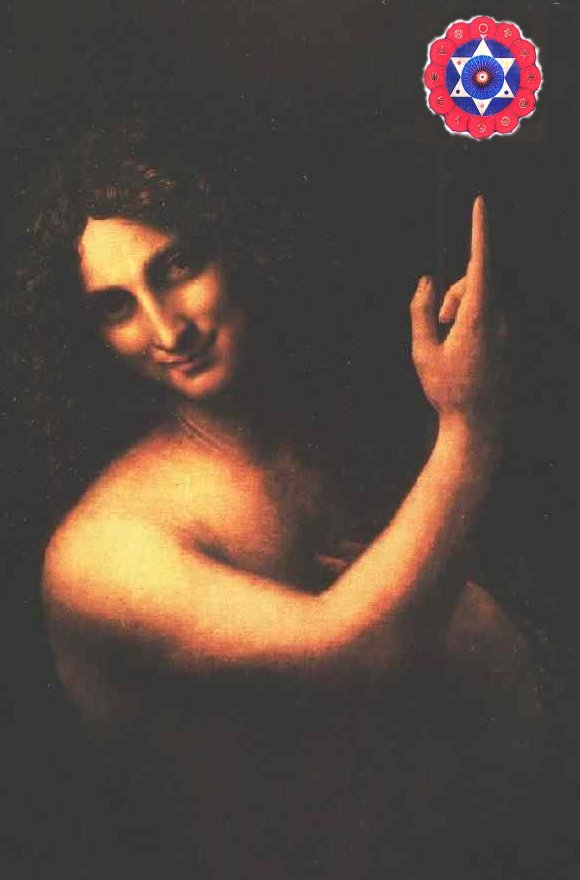
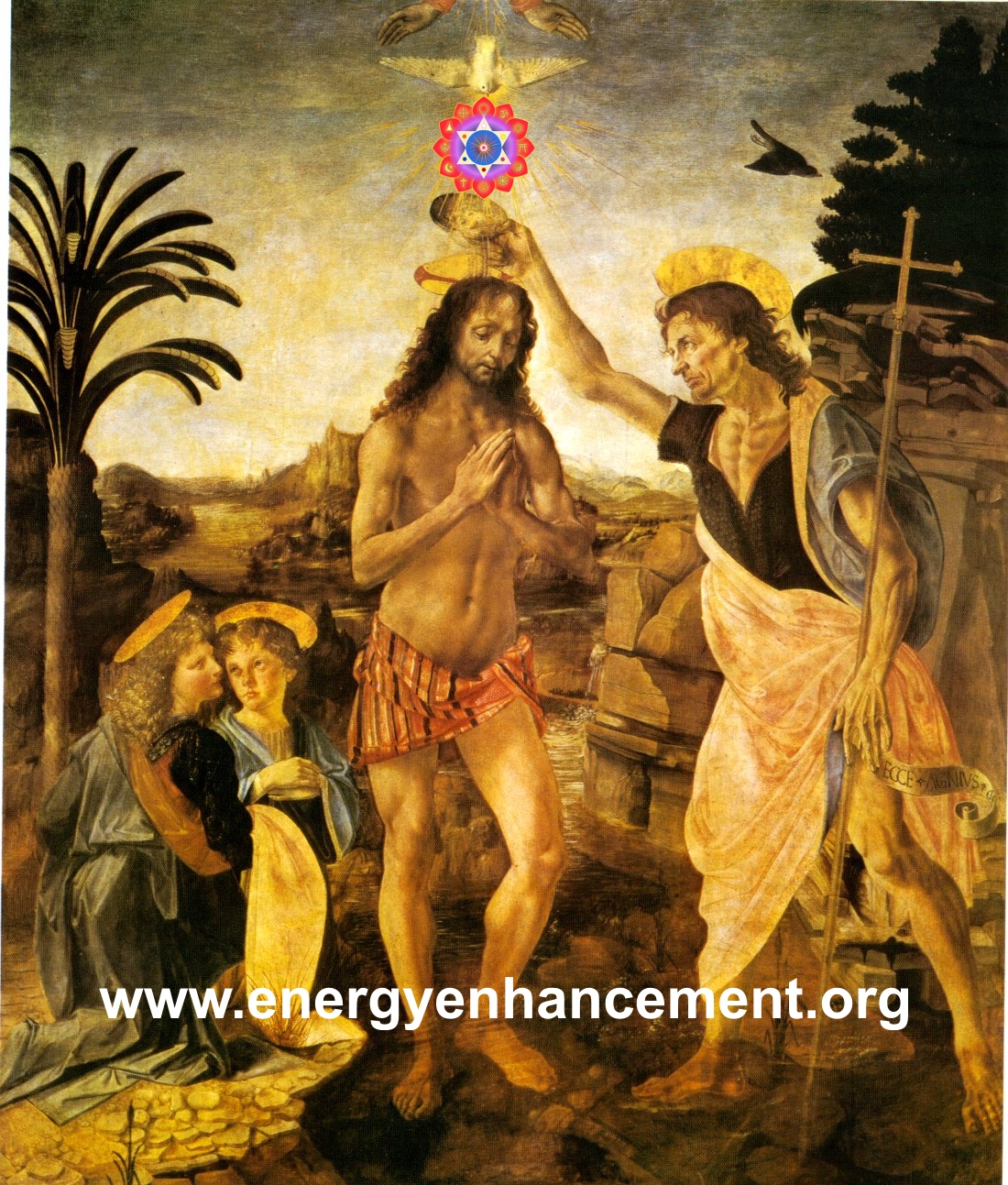
known
as the Vitruvian Man represented a symbolic and mathematical
exploration of the human form as world axis.[17]
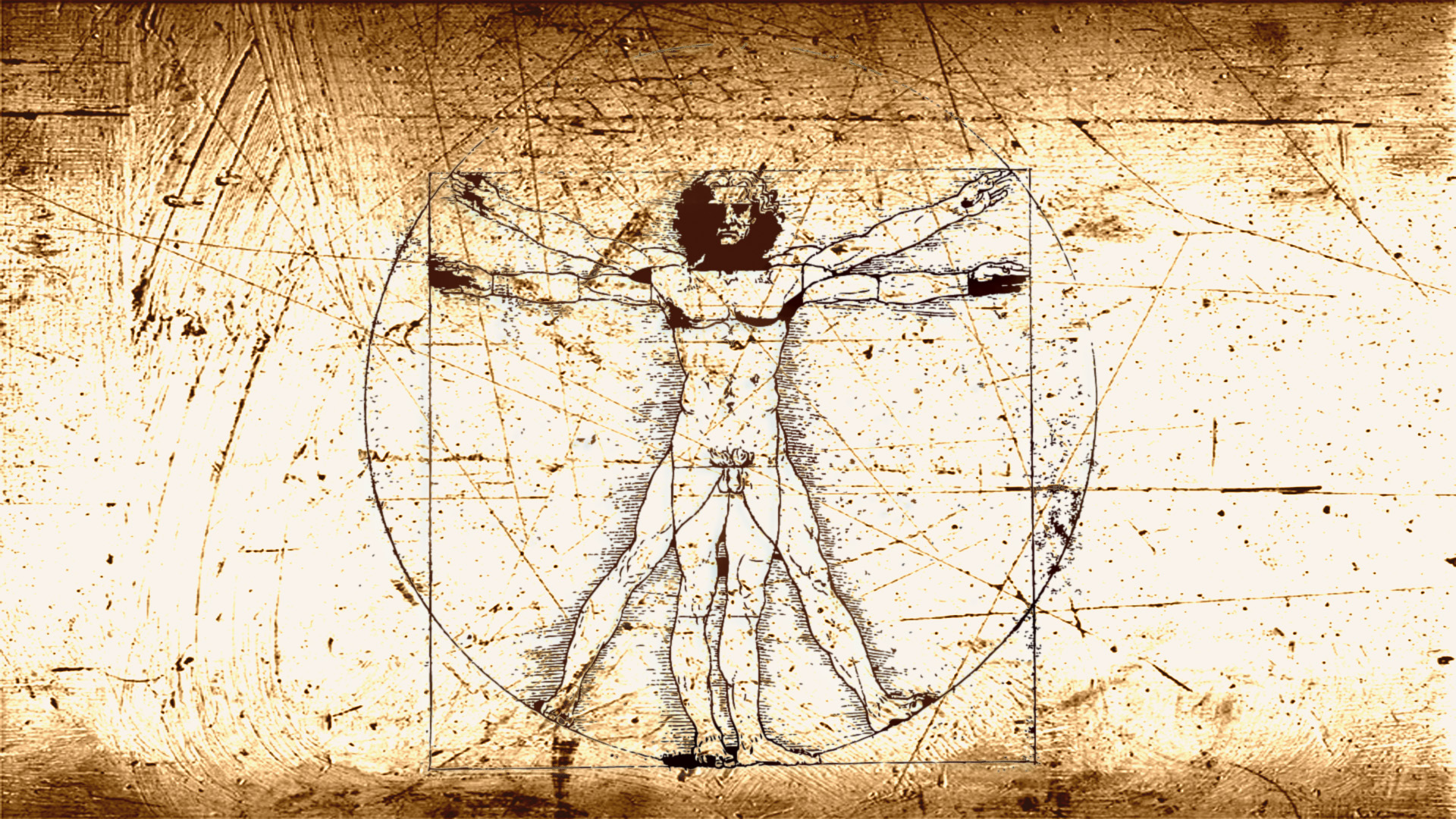
Homes can represent world centers. The symbolism for their residents is the same as for inhabitants of palaces and other sacred mountains.[13]
The
hearth (h earth) participates in the symbolism of the nuclear fires
in the center of the earth of Kundalini Chakra and a central garden
participates in the symbolism of primordial paradise.
In
Asian cultures houses were traditionally laid out in the form of a
square oriented toward the four compass directions. A traditional
Asian home was oriented toward the sky through Feng shui, a system of
geomancy, just as a palace would be.
Traditional
Arab houses are also laid out as a square (the four sides , four
petals of the base chakra) surrounding a central fountain that evokes
the kundalini fires springing upwards from the center of the earth.
Mircea
Eliade noted that "the symbolism of the pillar in [European]
peasant houses likewise derives from the 'symbolic field' of the axis
mundi. In many archaic dwellings the central pillar does in fact
serve as a means of communication with the heavens, with the
sky."[21]
The
nomadic peoples of Mongolia and the Americas more often lived in
circular structures. The central pole of the tent still operated as
an axis but a fixed reference to the four compass points was
avoided.[22]
The Caduceus - Shamanic function - A common shamanic concept, and a universally told story, is that of the healer traversing the chakras above the head of axis mundi to bring back knowledge from the other world.
The Caduceus - Shamanic function - A common shamanic concept, and a universally told story, is that of the healer traversing the chakras above the head of axis mundi to bring back knowledge from the other world.
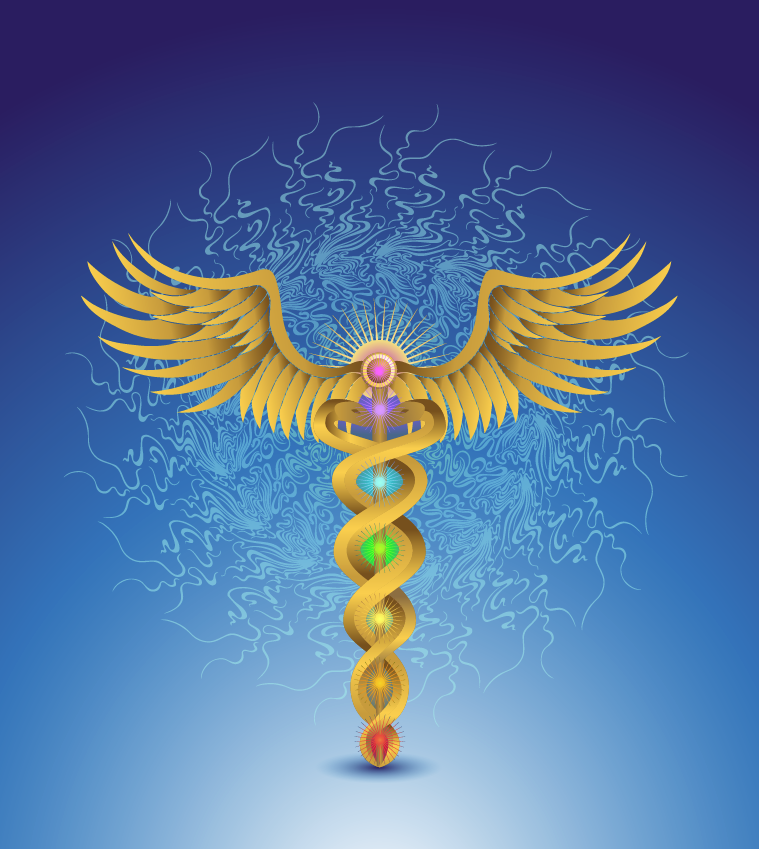
CADUCEUS
CHAKRAS
It
may be seen in the stories from Odin and the World Ash Tree to the
Garden of Eden and Jacob's Ladder to Jack and the Beanstalk and
Rapunzel.
It
is the essence of the journey described in The Divine Comedy by Dante
Alighieri who together with Cosimo de Medici founded the Renaissance
against Slave trading Banker run Venice. The epic poem relates its
hero's descent and ascent through a series of spiral structures that
take him from through the core of the earth, from the depths of Hell
to celestial Paradise.
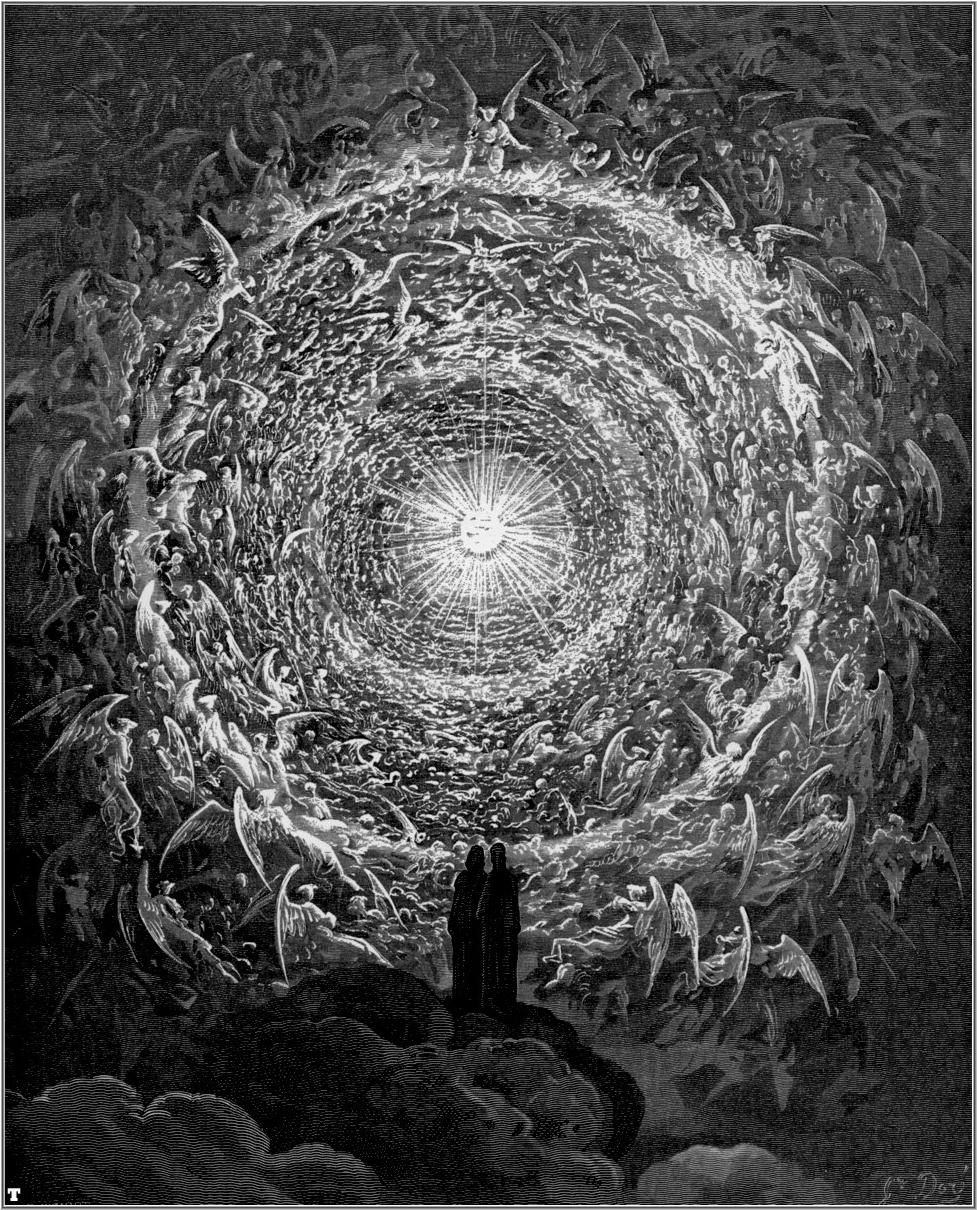
DANTE
INFERNO - LOOKING INTO THE ANTAHKARANA CHAKRAS ABOVE THE HEAD
It
is also a central tenet in the Southeastern Ceremonial
Complex.[23]
Anyone or anything suspended on the axis of the chakras above the head of axis mundi between heaven and earth becomes a repository of potential knowledge. A special status accrues to the thing suspended: a serpent, a victim of crucifixion or hanging, a rod, a fruit, mistletoe.
Anyone or anything suspended on the axis of the chakras above the head of axis mundi between heaven and earth becomes a repository of potential knowledge. A special status accrues to the thing suspended: a serpent, a victim of crucifixion or hanging, a rod, a fruit, mistletoe.
Derivations
of this idea find form in the Rod of Asclepius, an emblem of the
medical profession, and in the caduceus, an emblem of correspondence
and commercial professions. The staff in these emblems represents the
axis mundi while the kundalini serpents act as guardians of, or
guides to, knowledge.[24]
These are all traditional expressions of the Antahkarana and the Energy Enhancement Kundalini Key
Asia
Wuji
Bodhi tree, especially where Gautama Buddha found Enlightenment
Pagoda
Stupa (Buddhism, Hinduism)
Mount Meru in Hinduism
Mount Kailash regarded by Hinduism and several religions in Tibet, e.g. Bön
Jambudweep in Hinduism and Jainism which is regarded as the actual navel of the universe (which is human in form)
Kailasa (India), the abode of Shiva
Mandara (India)
[Shiva Lingam] (India)
Kunlun Mountains (China), residence of the Immortals and the site of a peach tree offering immortality
Human figure (yoga, tai chi, Buddha in meditation, sacred images)
Ise Shrine (Shinto)
Central courtyard in traditional home
Bamboo stalk, associated with knowledge and learning
Middle East
Garden of Eden with four rivers
Tree of Life and Tree of Knowledge of Good and Evil
Mt. Ararat landing place of Noah's ark and court of the Armenian gods
Ziggurat, or Tower of Babel
Jacob's Ladder
Jerusalem, specifically, the Holy Temple; focus of Jewish prayer where Abraham bound Isaac
Cross of the Crucifixion
Steeple
Mecca, specifically, the Ka'aba; focus of Muslim prayer and where Adam descended from heaven
Dome of the Rock where Muhammad ascended to heaven
Minaret
Dilmun
Garizim (Samaria)
Hara Berezaiti (Persia)
Zaphon
Africa
Meskel bonfire
Stelae of the Aksumite Empire
Pyramids of Egypt
Osun-Osogbo Sacred Grove of Nigeria
Jebel Barkal of Sudan
Idafe of prehispanic La Palma
Mt Kenya of Kenya
Mount Kilimanjaro
These are all traditional expressions of the Antahkarana and the Energy Enhancement Kundalini Key
Asia
Wuji
Bodhi tree, especially where Gautama Buddha found Enlightenment
Pagoda
Stupa (Buddhism, Hinduism)
Mount Meru in Hinduism
Mount Kailash regarded by Hinduism and several religions in Tibet, e.g. Bön
Jambudweep in Hinduism and Jainism which is regarded as the actual navel of the universe (which is human in form)
Kailasa (India), the abode of Shiva
Mandara (India)
[Shiva Lingam] (India)
Kunlun Mountains (China), residence of the Immortals and the site of a peach tree offering immortality
Human figure (yoga, tai chi, Buddha in meditation, sacred images)
Ise Shrine (Shinto)
Central courtyard in traditional home
Bamboo stalk, associated with knowledge and learning
Middle East
Garden of Eden with four rivers
Tree of Life and Tree of Knowledge of Good and Evil
Mt. Ararat landing place of Noah's ark and court of the Armenian gods
Ziggurat, or Tower of Babel
Jacob's Ladder
Jerusalem, specifically, the Holy Temple; focus of Jewish prayer where Abraham bound Isaac
Cross of the Crucifixion
Steeple
Mecca, specifically, the Ka'aba; focus of Muslim prayer and where Adam descended from heaven
Dome of the Rock where Muhammad ascended to heaven
Minaret
Dilmun
Garizim (Samaria)
Hara Berezaiti (Persia)
Zaphon
Africa
Meskel bonfire
Stelae of the Aksumite Empire
Pyramids of Egypt
Osun-Osogbo Sacred Grove of Nigeria
Jebel Barkal of Sudan
Idafe of prehispanic La Palma
Mt Kenya of Kenya
Mount Kilimanjaro

Europe
Yggdrasil (World Ash Tree in Norse cosmology)
Irminsul (World Pillar in Germanic paganism)
Mount Olympus in Greece, court of the gods (Greek mythology)
Sampo or Sammas (Baltic-Finnic mythology)
Delphi home of the Oracle of Delphi and (Greek mythology)
Colossus of Rhodes (Greek mythology)
Maypole (East Europe and Germanic paganism)
Jack's Beanstalk (English fairy tale)
Rapunzel's Tower (German fairy tale)
Hearth
Central pillar of peasant homes
Altar
Vitruvian Man
Hagia Sophia
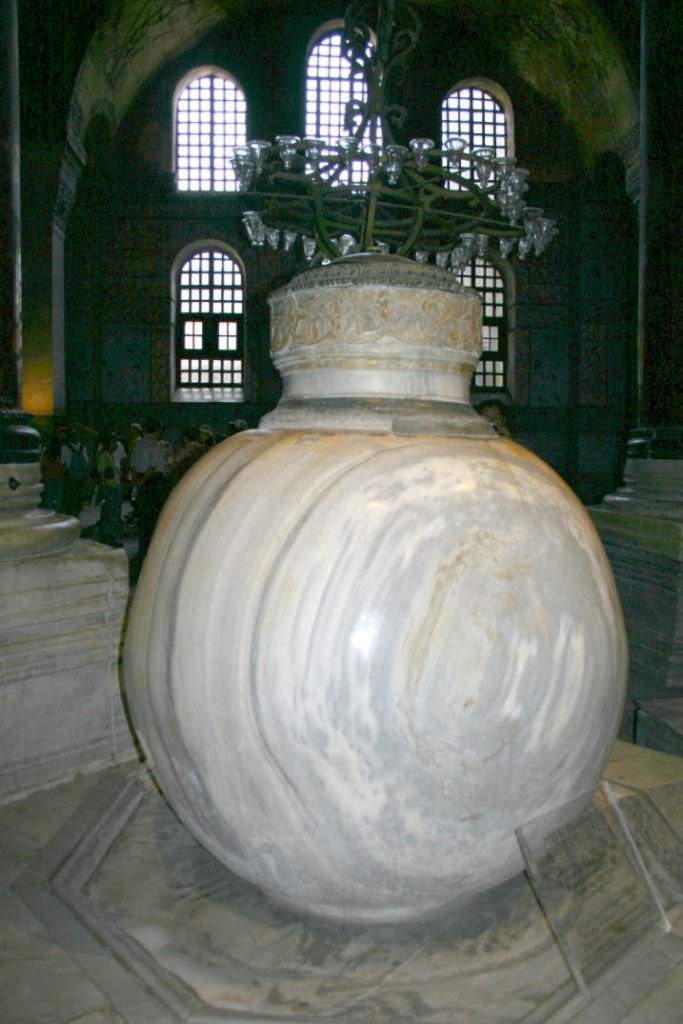
THE
KUNDALINI KEY DECORATION WITHIN HAGIA SOPHIA
St. Peter's Basilica
Umbilicus urbis Romae, a structure in the Roman Forum from where all the Roman roads parted.
The Americas
Teotihuacán Pyramids
Totem Pole
Tent
Black Hills (Sioux)
Calumet (sacred pipe)
Bamboo (Hopi)
Southeastern Ceremonial Complex
Medicine wheels of the northern Great Plains
Temple Lot (Mormonism)
Cuzco (Incas), meaning "navel" in Quechua
Chakana
Mesoamerican world tree
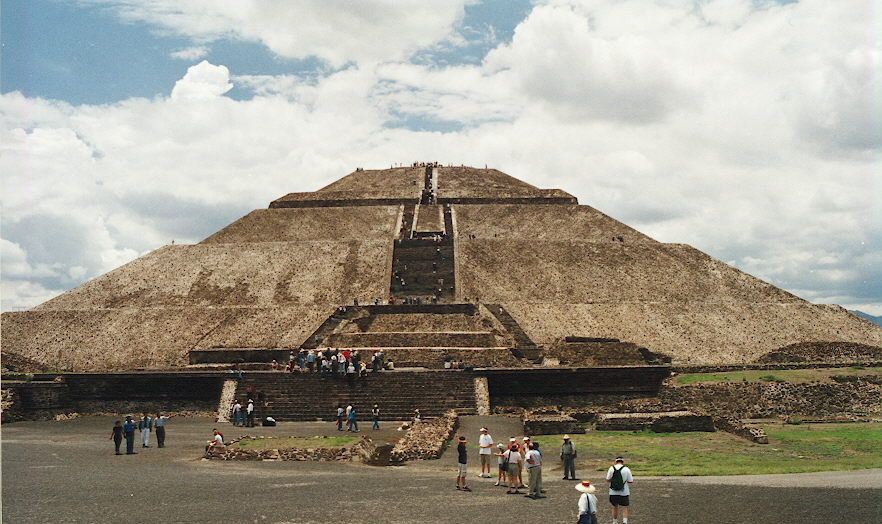
Teotihuacán Pyramids
Australia
Uluru
Rainbow Snake
Uluru
Rainbow Snake
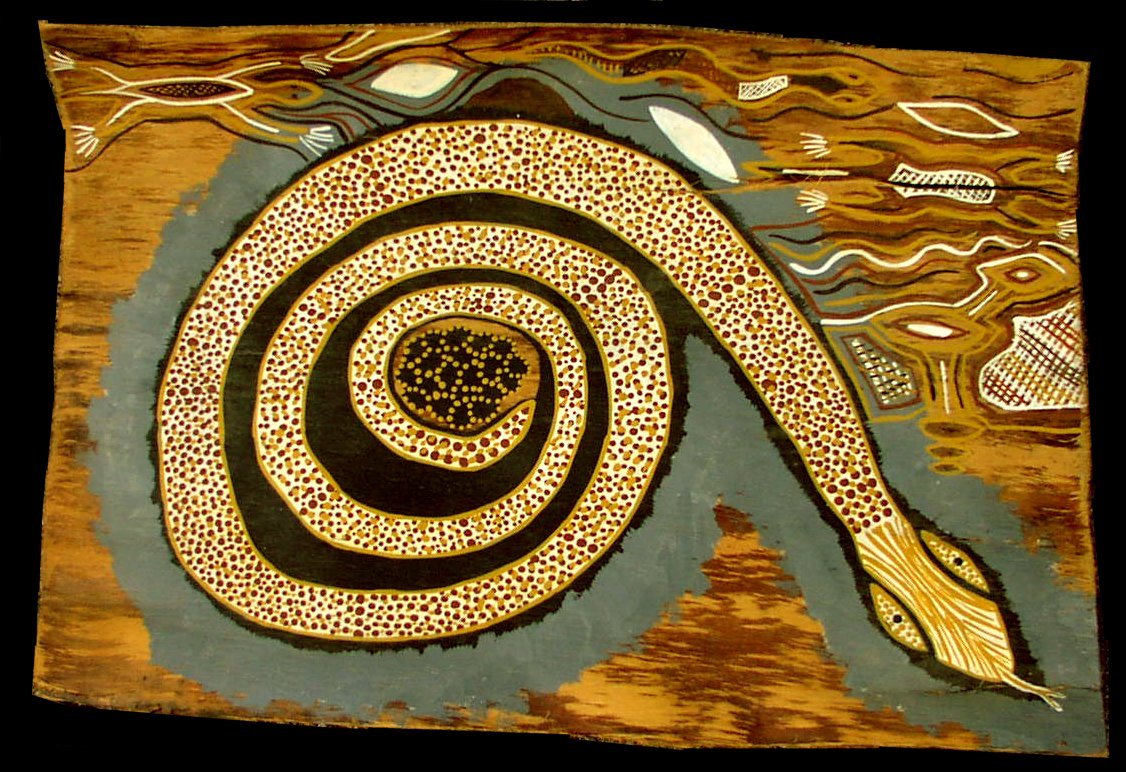
RAINBOW
SNAKE ANTAHKARANA
Modern expression
Taipei 101 (Taiwan)
Axis mundi the Antahkarana and the Energy Enhancement Kundalini Key symbolism continues to be evoked in modern societies. The idea has proven especially consequential in the realm of architecture.
Capitol
buildings, as the direct descendents of palaces, fill this role, as
do commemorative structures such as the Washington Monument in the
United States.
A
skyscraper, as the term itself suggests, suggests the connection of
earth and sky, as do spire structures of all sorts. Such buildings
come to be regarded as "centers" of an inhabited area, or
even the world, and serve as icons of its ideals.[25] The first
skyscraper of modern times, the Eiffel Tower, exemplifies this role.
The structure was erected in 1889 in Paris, France, to serve as the
centerpiece for the Exposition Universelle, making it a symbolic
world center from the planning stages. It has served as an iconic
image for the city and the nation ever since.[26] Landmark
skyscrapers often take names that clearly identify them as
centers.[27]
Designers of skyscrapers today routinely evoke the axis mundi symbolism inherent in ancient precedents. Taipei 101 in Taiwan, completed in 2004, evokes the staircase, bamboo stalk, pagoda, pillar and torch.
Designers of skyscrapers today routinely evoke the axis mundi symbolism inherent in ancient precedents. Taipei 101 in Taiwan, completed in 2004, evokes the staircase, bamboo stalk, pagoda, pillar and torch.

TAIPEI
101
The
design of the Burj Khalifa (United Arab Emirates) evokes both desert
plants and traditional Arab spires. William F, Smith, one of the
designers, states that "the goal of the Burj Dubai [subsequently
renamed Burj Khalifa] is not simply to be the world's tallest
building--it is to embody the world's highest aspirations."[28]
Twin
towers, such as the Petronas Towers (Kuala Lumpur, Malaysia) and the
former World Trade Center (Manhattan), maintain the axis symbolism
even as they more obviously assume the role of pillars like the
Masonic Columns, Joachim and Boaz - The circulation of the energies
is shown by the Kundalini Wyrm Ourobouros.
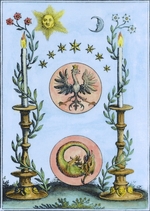
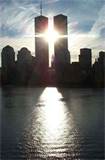
The
two towers represent the upward and downward flows of of Gurdjieffs
Reciprocal Maintenance within the one Antahkarana and the Circulation
of the Energies of the Kundalini Kriyas of Kundalini Yoga of Ascended
Master Babaji on one side of the Himalayas and the same meditation of
the Taoist Orbits on the other side of the Himalayas in China.
Some
structures pierce the sky, implying movement or flight (Chicago
Spire, CN Tower in Toronto, the Space Needle in Seattle). Some
structures highlight the more lateral elements of the symbol in
implying portals (Tuntex Sky Tower in Kaohsiung, Taiwan, The Gateway
Arch in St. Louis).[29][30]
The places with economic importance and where skyscrapers are founded are recognised as Financial centres. Examples of financial centres are London, New York City, Rome, Paris, Tokyo, Hong Kong, Chicago, Seoul, Shanghai, Toronto, Montreal, São Paulo, Frankfurt, and Amsterdam.
A geodesic place is another modern symbolism. Brasília, capital of Brazil, is known as a Geodesic place, where it is positioned at the middle of the country, in a water divisor.
Ancient traditions continue in modern structures. The Peace Pagodas built since the 1947 unite religious and secular purposes in one symbol drawn from Buddhism. The influence of the pagoda tradition may be seen in modern Asian skyscrapers (Taipei 101, Petronas Towers). The ancient ziggurat has likewise reappeared in modern form, including the headquarters of the National Geographic Society in Washington, DC and The Ziggurat housing the California Department of General Services. Architect Frank Lloyd Wright conceived the Guggenheim Museum in New York as an inverted ziggurat. The Washington Monument is a modern obelisk.[31]
Artistic representations of the world axis abound. Prominent among these is the Colonne sans fin (The Endless Column, 1938) an abstract sculpture by Romanian Constantin Brâncuşi. The column takes the form of a "sky pillar" (columna cerului) upholding the heavens even as its rhythmically repeating segments represent the Chakras above the Head and suggest the possibility of ascension.[32]
The places with economic importance and where skyscrapers are founded are recognised as Financial centres. Examples of financial centres are London, New York City, Rome, Paris, Tokyo, Hong Kong, Chicago, Seoul, Shanghai, Toronto, Montreal, São Paulo, Frankfurt, and Amsterdam.
A geodesic place is another modern symbolism. Brasília, capital of Brazil, is known as a Geodesic place, where it is positioned at the middle of the country, in a water divisor.
Ancient traditions continue in modern structures. The Peace Pagodas built since the 1947 unite religious and secular purposes in one symbol drawn from Buddhism. The influence of the pagoda tradition may be seen in modern Asian skyscrapers (Taipei 101, Petronas Towers). The ancient ziggurat has likewise reappeared in modern form, including the headquarters of the National Geographic Society in Washington, DC and The Ziggurat housing the California Department of General Services. Architect Frank Lloyd Wright conceived the Guggenheim Museum in New York as an inverted ziggurat. The Washington Monument is a modern obelisk.[31]
Artistic representations of the world axis abound. Prominent among these is the Colonne sans fin (The Endless Column, 1938) an abstract sculpture by Romanian Constantin Brâncuşi. The column takes the form of a "sky pillar" (columna cerului) upholding the heavens even as its rhythmically repeating segments represent the Chakras above the Head and suggest the possibility of ascension.[32]
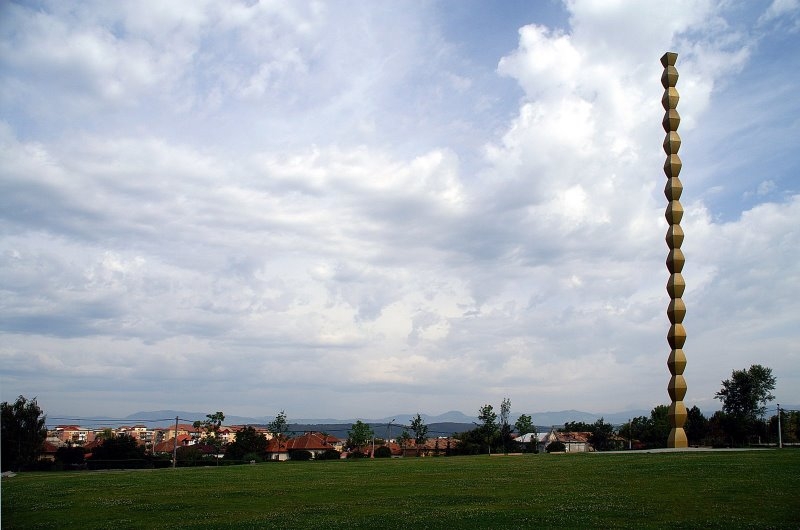
Chakras above the head - Colonne sans fin by Constantin Brâncuşi
The association of the cosmic pillar with knowledge gives it a prominent role in the world of scholarship. University campuses typically assign a prominent axis role to a campus structure, such as a clock tower, library tower or bell tower. The building serves as the symbolic center of the settlement represented by the campus and serves as an emblem of its ideals. This symbolism of the center is closely tied to the widespread symbolism of the world axis.[33] The image of the "ivory tower", a colloquial metaphor for academia, sustains the metaphor.[30]
The image still takes natural forms as well, as in the American tradition of the Liberty Tree located at town centers. Individual homes continue to act as world axes, especially where Feng shui and other geomantic practices continue to be observed.
The corner of Haight and Ashbury Streets in San Francisco, California is regarded as the axis mundi in the hippie subculture. Christopher Street in Manhattan in New York City is the axis mundi in the gay subculture. Folsom Street, also in San Francisco, is the axis mundi in the leather subculture.
Axis mundi symbolism may be seen in much of the romance surrounding space travel. A rocket on the pad takes on all the symbolism of a tower and the astronaut enacts a mythic story.[34] Each embarks on a perilous journey into the heavens and, if successful, returns with a boon for dissemination. The Apollo 13 insignia stated it succinctly: Ex luna scientia ("From the Moon, knowledge").[35]
Modern Storytelling - the Antahkarana and the Energy Enhancement Kundalini Key
The axis mundi continues to appear in fiction as well as in real-world structures. Appearances of the ancient image in the tales and myths of more recent times include these:
The ash tree growing in Hunding's living room, a Norse legend that figures prominently in Act 1 of Die Walküre (The Valkyrie), is one of many appearances of the image in the operas of Richard Wagner. Hunding's tree recalls the World Ash visited by Wotan, a central character in the Ring cycle of which this opera forms a part (1848–74).
The sphinx in the science fiction novel The Time Machine (1895) by H. G. Wells serves as center for the world of the far distant future. The time traveller's explorations begin there and the structure unites the planes of future human society.
The Emerald City in the land of Oz, depicted in the popular book by L. Frank Baum (1900) and the subsequent MGM film (1939), stands at the center of the four compass directions.
The Dark Tower, serves as the axis of all the universes in the novels of Stephen King
Orodruin, location of the creation and destruction of the One Ring, is one of many representations of the symbol in The Lord of the Rings by J. R. R. Tolkien (1937–49).
Two Trees of Valinor in Tolkien's tellingly named Middle-earth produce the light of the Supreme God (1937–49).
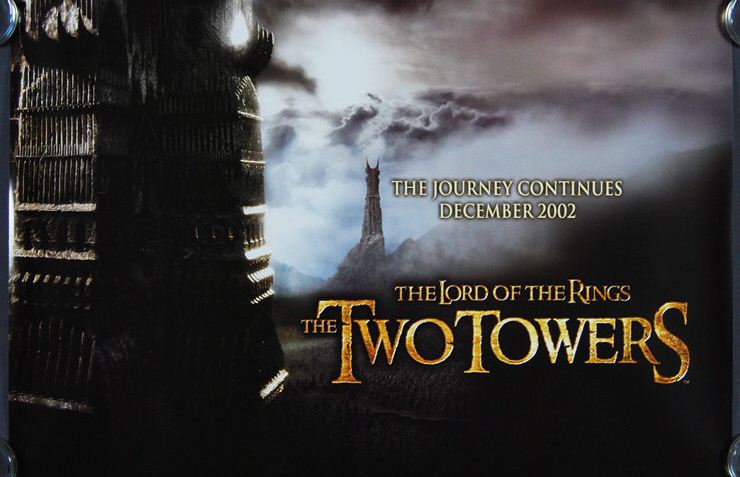
The wardrobe and lamppost in The Chronicles of Narnia by C. S. Lewis (1949–54) mark the spot where children travel between this world and the next as well as the place where the world ends.
The wooded hilltop and ascending and descending staircases in The Midsummer Marriage, an opera by English composer Michael Tippett (1955), explore Jungian aspects of the symbol.
The pillar of fire rising to heaven from the ark of the covenant is recalled in the climax of Steven Spielberg's film Raiders of the Lost Ark (1981).
A huge sheltering tree on a hilltop near the end of Stealing Beauty, a 1996 film by Bernardo Bertolucci, crowns a series of images evoking the primordial Paradise garden.
In Supernatural, the Axis Mundi was a road (or tunnel, or river — depended on the person's perspective) that lead through heaven to its center ('heaven's garden').
Filmmakers have placed axis mundi symbols in Bob Kane's Gotham City. In Christopher Nolan's Batman Begins (2005) the city's symbolic centre is a skyscraper built by Bruce Wayne's father. The same role is filled by a fantastic cathedral in an earlier film by Tim Burton (1989). Burton's cathedral unites the images of steeple, skyscraper, staircase, ladder and rope.
The maypole and related images appear in a number of popular songs. "The Wheel and the Maypole" by XTC explicitly riffs on the axis mundi idea.
The Island in the ABC drama Lost is revealed in its sixth season to function as a sort of axis mundi.
In God of War: Chains of Olympus the axis mundi appears in a literal way as it separates Earth from Hades. It is destroyed in Persephone's scheme to destroy all life, and after its destruction Atlas is punished by replacing the pillar.
In World of Warcraft: Cataclysm, The world pillar appears in a literal form, having been broken Azeroth and Deepholme threaten to collapse on one another, leaving Thrall and the Earthen ring to hold the worlds apart while players try to help repair it.
In the Harry Potter books and movie series, the platform 9 and 3/4's bridges between the non-magical world of muggles, and the wizarding world, which is hidden from muggles. Harry Potter and all young magical folk in the first book Harry Potter and the Philosopher's Stone[36] have to cross onto the platform to get to the magical world of Hogwarts and the consequent adventures.
The Antahkarana and the Energy Enhancement Kundalini Key - See also
THE
STUPA IS THE KUNDALINI KEY TO STREAM ENTRY - NO LONGER
TAUGHT IN BUDDHISM - Chakras
above the Head -The Buddhist Thirty-one Planes of Existence and
Energy Blockages-
JHANAS, HEAVENS, Vampire Parasitic Ghost Blockages, DEMONS, ASURAS
Buddhist
Stream Entry Part 1 Meditational
Alignment with a Stream of Energy From Heaven to Earth - The
Antahkarana
Buddhist
Stream Entry Part 2: Stream entry and After
- Meditational
Alignment with a Stream of Energy From Heaven to Earth - The
Antahkarana
THE
KUNDALINI KEY IN HINDUISM - THE MACE OF HANUMAN IS THE KUNDALINI KEY
NO LONGER TAUGHT IN HINDUISM
Alchemy and VITRIOL
Taoist Orbits
Alchemy and VITRIOL
Taoist Orbits
ENERGY ENHANCEMENT LEVEL ONE - INCLUDING GUIDED MEDITATION - INITIATION THREE ALCHEMICAL VITRIOL - ROOTING IN THE EARTH - GROUNDING NEGATIVE ENERGIES - THE PHILOSOPHICAL FOUNDATIONS
GUIDED MEDITATION - INITIATION THREE - ALCHEMICAL VITRIOL - ROOTING IN THE EARTH - GROUNDING NEGATIVE ENERGIES - THE PHILOSOPHICAL FOUNDATIONS
Visita Interiore Terrae Rectificando Invenies Occultem Lapidem
and Earth Connection ALCHEMY
AND HERMES TRISMEGISTUS
THE
ADVANCED KUNDALINI KRIYAS OF KRIYA YOGA AND
CONTACT WITH KUNDALINI CHAKRA IN THE CENTER OF THE EARTH WHOSE
NUCLEAR FIRES CAN BURN UP EVEN THE DEEPEST KARMA!!
VITRIOL and Anchoring the Grid System of Mother Earth
VITRIOL - ANCHORING THE EARTH CONNECTION
"Creating the Golden Head" is a Sufi phrase which comes before Illumination. It refers to the practise of Samadhi (Sam - with, Adhi - the Light) burning out all the Impurities.
ODIN AND YGGDRASIL - THE ANTAHKARANA, AXIS MUNDI, WORLD TREE AND ALCHEMICAL VITRIOL
THE TAOIST MACROCOSMIC ORBIT IS THE ENERGY ENHANCEMENT SUPRA GALACTIC ORBIT
THE
IMMORTAL ALCHEMICAL HOLY TRINITY, SULPHUR, SALT AND MERCURY - THE
IMMORTALITY PRODUCING, "ELIXIR OF LIFE" WITH ENERGY
ENHANCEMENT
Celestial sphere
Crucifix
Fleur de lis
Herma
Hyperborea
Optical axis
Palmette
Phurba
Taiji (philosophy)
Vorticism
References
1. Mircea Eliade (tr. Philip Mairet). 'Symbolism of the Centre' in Images and Symbols. Princeton, 1991. p.48-51
2. Mircea Eliade (tr. Philip Mairet). 'Symbolism of the Centre' in Images and Symbols. Princeton, 1991. p.40
3. J. C. Cooper. An Illustrated Encyclopedia of Traditional Symbols. Thames and Hudson: New York, 1978.
4. Mircea Eliade (tr. Willard Trask). 'Archetypes and Repetition' in The Myth of the Eternal Return. Princeton, 1971. p.16
5. a b Jean Chevalier and Alain Gheerbrandt. The Penguin Dictionary of Symbols. Editions Robert Lafont S. A. et Editions Jupiter: Paris, 1982. Penguin Books: London, 1996. pp.61-63, 173-175
6. a b Mircea Eliade (tr. Philip Mairet). 'Symbolism of the Centre' in Images and Symbols. Princeton, 1991. p.39
7. Mircea Eliade (tr. Philip Mairet). 'Symbolism of the Centre' in Images and Symbols. Princeton, 1991. p.37-39
8. Mircea Eliade (tr. Philip Mairet). 'Symbolism of the Centre' in Images and Symbols. Princeton, 1991. p.41-43
9. Jean Chevalier and Alain Gheerbrandt. The Penguin Dictionary of Symbols. Editions Robert Lafont S. A. et Editions Jupiter: Paris, 1982. Penguin Books: London, 1996. pp.680-685
10. Jean Chevalier and Alain Gheerbrandt. The Penguin Dictionary of Symbols. Editions Robert Lafont S. A. et Editions Jupiter: Paris, 1982. Penguin Books: London, 1996. pp.681
11. Kelley Coblentz Bautch (25 September 2003). A Study of the Geography of 1 Enoch 17-19: "no One Has Seen what I Have Seen". BRILL. pp. 62–. ISBN 978-90-04-13103-3. Retrieved 28 June 2011.
12. Jean Chevalier and Alain Gheerbrandt. The Penguin Dictionary of Symbols. Editions Robert Lafont S. A. et Editions Jupiter: Paris, 1982. Penguin Books: London, 1996. p.681
13. a b Mircea Eliade (tr. Willard Trask). 'Archetypes and Repetition' in The Myth of the Eternal Return. Princeton, 1971. p.12
14. Jean Chevalier and Alain Gheerbrandt. The Penguin Dictionary of Symbols. Editions Robert Lafont S. A. et Editions Jupiter: Paris, 1982. Penguin Books: London, 1996. pp.148-149
15. Mircea Eliade (tr. Philip Mairet). 'Symbolism of the Centre' in Images and Symbols. Princeton, 1991. p.52-54
16. Mircea Eliade (tr. Philip Mairet). 'Symbolism of the Centre' in Images and Symbols. Princeton, 1991. p.42-45
17. a b Chevalier, Jean and Gheerbrandt, Alain. The Penguin Dictionary of Symbols. Editions Robert Lafont S. A. et Editions Jupiter: Paris, 1982. Penguin Books: London, 1996. pp.1025-1033
18. Miller, Mary; and Karl Taube (1993). The Gods and Symbols of Ancient Mexico and the Maya. London: Thames and Hudson. p. 186. ISBN 0500050686.
19. Mircea Eliade (tr. Philip Mairet). 'Symbolism of the Centre' in Images and Symbols. Princeton, 1991. p.54
20. Mircea Eliade (tr. Philip Mairet). 'Indian Symbolisms of Time and Eternity' in Images and Symbols. Princeton, 1991. p.76
21. Mircea Eliade. 'Brâncuşi and Mythology' in Symbolism, the Sacred, and the Arts. Continuum, 1992. p. 100
22. Jean Chevalier and Alain Gheerbrandt. The Penguin Dictionary of Symbols. Editions Robert Lafont S. A. et Editions Jupiter: Paris, 1982. Penguin Books: London, 1996. pp.529-531
23. Townsend, Richard F. (2004). Hero, Hawk, and Open Hand. Yale University Press. ISBN 0-300-10601-7.
24. Jean Chevalier and Alain Gheerbrandt. The Penguin Dictionary of Symbols. Editions Robert Lafont S. A. et Editions Jupiter: Paris, 1982. Penguin Books: London, 1996. pp.142-145
25. Judith Dupré. 'Skyscrapers: A History of the World's Most Extraordinary Buildings.' Black Dog & Leventhal, 1998/2008. p.137
26. Judith Dupré. 'Skyscrapers: A History of the World's Most Extraordinary Buildings.' Black Dog & Leventhal, 1998/2008. p. 19
27. Judith Dupré. 'Skyscrapers: A History of the World's Most Extraordinary Buildings.' Black Dog & Leventhal, 1998/2008. pp. 45, 69, 81, 91, 97,135, 136, 143
28. Judith Dupré. 'Skyscrapers: A History of the World's Most Extraordinary Buildings.' Black Dog & Leventhal, 1998/2008. p.136-7
29. Judith Dupré. 'Skyscrapers: A History of the World's Most Extraordinary Buildings.' Black Dog & Leventhal, 1998/2008
30. a b Jean Chevalier and Alain Gheerbrandt. The Penguin Dictionary of Symbols. Editions Robert Lafont S. A. et Editions Jupiter: Paris, 1982. Penguin Books: London, 1996. pp.1020-1022
31. Judith Dupré. 'Skyscrapers: A History of the World's Most Extraordinary Buildings.' Black Dog & Leventhal, 1998/2008. p.15
32. Mircea Eliade. 'Brâncuşi and Mythology' in Symbolism, the Sacred, and the Arts. Continuum, 1992. p.99-100
33. Mircea Eliade (1954). The Myth of the Eternal Return. New York: Princeton University Press 1991, p.12-17: "The Symbolism of the Center"
34. Jean Chevalier and Alain Gheerbrandt. The Penguin Dictionary of Symbols. Editions Robert Lafont S. A. et Editions Jupiter: Paris, 1982. Penguin Books: London, 1996. pp. 18, 1020-1022
35. Nasa Apollo Mission: Apollo 13. 2007-08-25
36. Rowling, J.K. (1997). Harry Potter and the Philosopher's Stone. Bloomsbury Publishing PLC. ISBN 0-7475-4955-9.

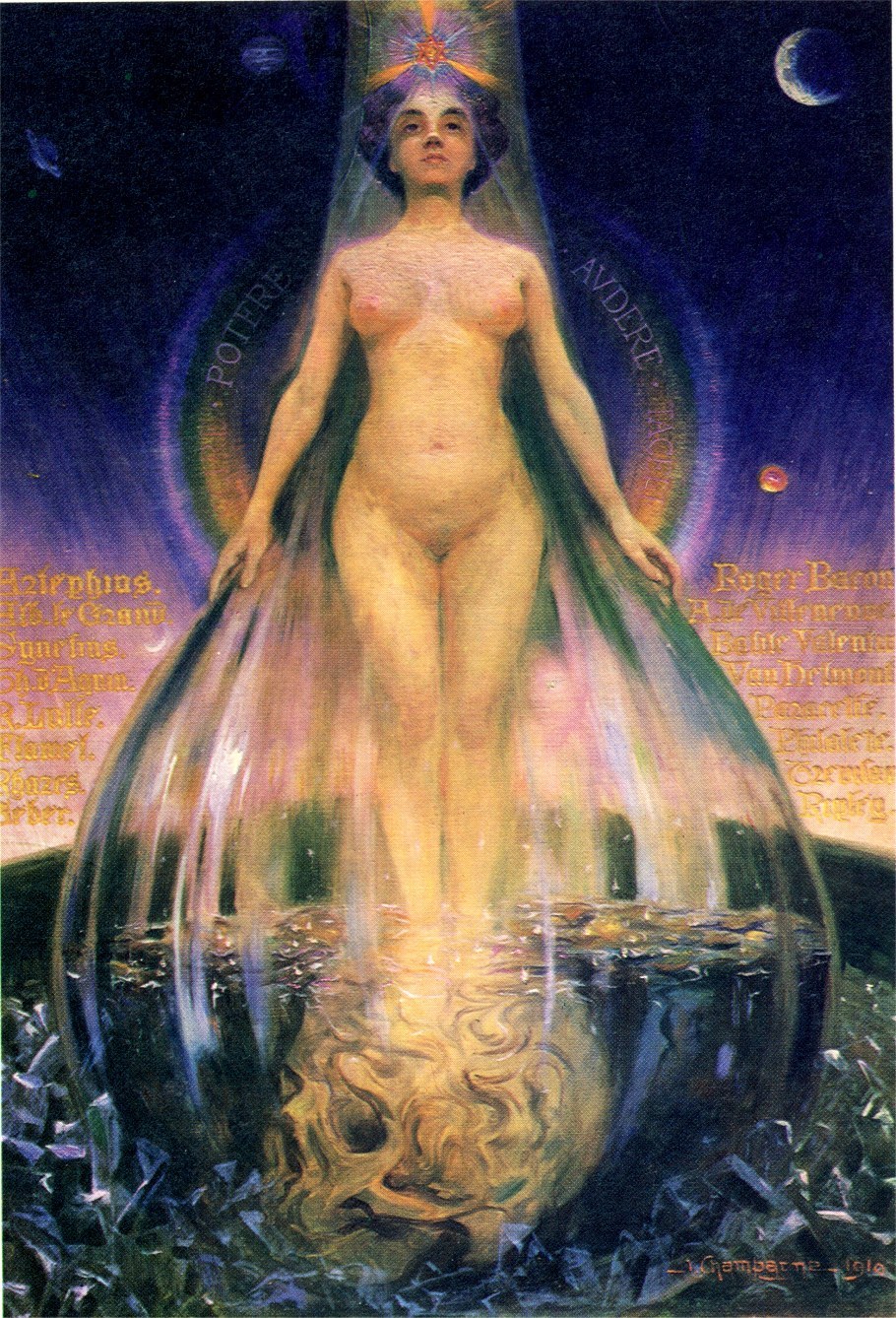
No comments:
Post a Comment